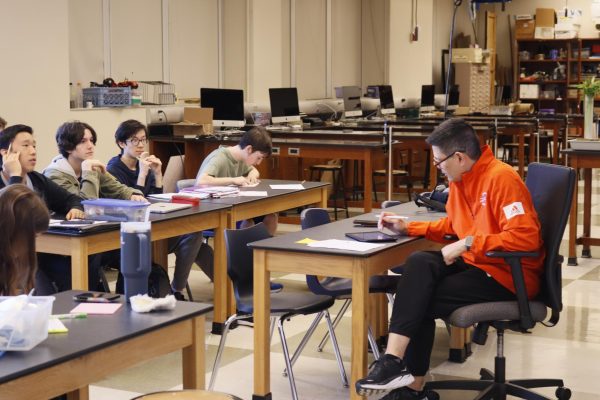The Trouble with Trash
The EPA estimates that around 75% of the 200 millions tons of waste that Americans generate is recyclable; however, only about 30% of it actually gets recycled.
The U.S. produces around 200 million pounds of waste every year. The major of this waste is paper — something that is very simple to recycle.
The U.S. generates around 200 million tons of garbage every year, according to dosomething.org. That is enough waste to fill Busch stadium from top to bottom twice every day for a year.
The main thing that Americans throw away is paper — an item that is easily recyclable. Environmental activists work tirelessly to combat this issue by informing the public about how to incorporate eco-friendly habits, such as recycling, into their daily lives.
.
Janet Crews, Instructional Coordinator at Glenridge Elementary and environmental activist, said, “I’ve been teaching students about the importance of recycling for almost 30 years. At this point I thought it would be a no-brainer. We should have recycling in every home and public space and people should be used to using them correctly.”
Recent changes in recycling at the global level have had definite local impacts. For years, many developed countries have sent their trash to China to be recycled. In 2017, however, China banned the import of plastic waste beginning in January of 2018.
One reason that China stopped accepting waste is because many recyclers contaminate their recycling by mixing it with trash.
“China was buying our recyclables to reuse the resources, but the cost of cleaning it to get to the resources is not worth what they are getting out of it, so they are being more particular about what they are buying. This is causing our haulers to either discontinue recycling pick up or charge more for it,” Crews said.
One reason why people are often careless about recycling is because they feel they do not have a reason to be resourceful and aware of their impacts on the environment. This problem can be addressed either through education or by providing an incentive to recycle.
Countries such as South Korea have recognized how important it is to address the problem of waste. Not only do they motivating citizens to recycle more, but they also penalizing excessive waste. In South Korea, people are required to buy bags specifically marked for waste disposal, while recycling is collected for free. This system gives people an incentive: the less waste they generate, the less they have to pay. The South Korean system presents a feasible solution for the rest of the world to consider.
“Recycling has been around so long and gotten so easy,” Crews said. “It’s just so disheartening to know that Americans have squandered this opportunity to positively impact the environment.”
A $50 or more donation includes a subscription to the Clayton High School Globe 2024-2025 print news magazine.
We will mail a copy of our issues to the recipients of your choice.
Your donation helps preserve the tangible experience of print journalism, ensuring that student voices reach our community and that student democracy thrives.

Josephine Cross is a senior and this is her third year on the Globe staff. She loves to travel and has visited many different countries. She is very excited to be on the Globe...

Noor is a senior this year and has been part of the Globe since her freshman year. She has always enjoyed reading and writing, and particularly enjoys learning about the Clayton...







